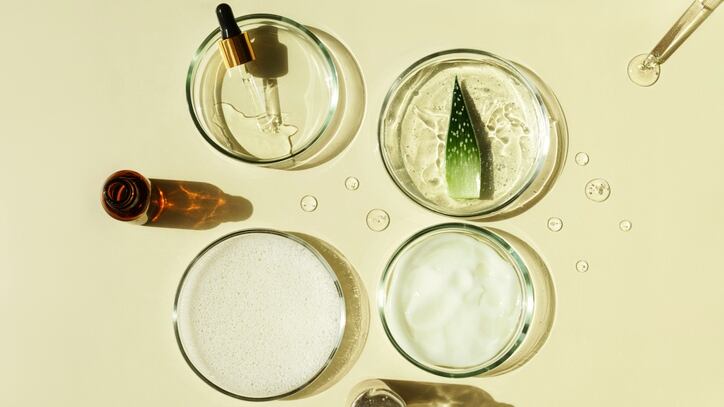A research team out of Malaysia, Norway and Saudi Arabia, Mohd‐Setapar et al., recently published a review in the journal Cosmetics going over the current state of both natural ingredients and nanotechnologies in the cosmetics market, and how they might be paired up to improve stability and efficacy.
What is "natural"?
Mohd‐Setapar et al. define natural ingredients as “any chemical substance that occurs naturally from;
- Processed
- Unprocessed—only by naturally, mechanical, manual, naturally derived solvent, or gravitational processes, dissolving in steam or water, heating merely to separate water, flotation
- Extracted from the air in every way possible
- Any substance in which the basic material is of plant, mineral, animal, or microbial origin and has been chemically treated and mixed with other ingredients, with the exception of fossil fuel‐derived and petroleum substances
- Ingredients are generated from a bio‐manufactured and plant feedstock by processes such as saponification, fermentation, esterification, or condensation to facilitate the efficient, economical, sustainable, or biodegradable creation of ingredients
While nanoparticles have been introduced as a new delivery system across the beauty market, Mohd‐Setapar et al. said the market has also seen significant consumer interest in natural products.
Some of the challenges with the use of natural ingredients include instability and possible reduction of bioavailability, the review said. However, the application of nanotechnology may be able to solve that formulation hurdle.
“Natural raw materials, especially plant extracts, have been identified as rich in beneficial properties when applied to the skin,” Mohd-Setapar et al. said. “However, they are chemically unstable and face adverse reactions during the formulation stage, which may cause a reduction in biological effects.”
The lowdown on nanotech
Mohd-Setapar et al. said nanotechnology or the study of “substances on a molecular and atomic scale,” has seen significant investment from the cosmetics industry spearheaded by a $600 million push from L’Oreal to patent nanotechnology.
Today, several cosmetics multinationals including L’Oreal, Procter & Gamble, Henkel and Unilever, hold patents for nanotechnology.
Nanotechnology-powered products on the cosmetics market carry a variety of functions, including anti-aging, cleansing, hair and skin repair, moisturizing and hair color protection, among others.
Notably, micellar products leverage nanotechnology and are readily available in mass-market settings, Mohd-Setapar et al. said.
Nanocosmeceuticals do face added safety requirements or recommendations internationally, including Food and Drug Administration recommendations for testing of physicochemical properties, routes of exposure and toxicological data of each nanomaterial.
Nanotechnology and natural ingredients
Mohd-Setapar et al said nanotechnology, specifically nanoencapsulation of phytocompounds, may have some significant advantages as a delivery system for natural cosmetics ingredients including:
- Prolonged stability
- Enhanced solubility
- Preservation of the therapeutic benefits of the extracts
- Improvement of local and controlled skin delivery of ingredients
- Enhanced sensory properties of cosmetic products
In one study cited by Mohd-Setapar et al. a nanoemulsion containing manganese extract, intended to deliver antiviral, antifungal, antioxidant, antitumoral and antibacterial bioactivities, found more than 95% of the natural content was delivered in skin penetration.
Other studies discussed in the review also opted to use nanotechnology with what Mohd-Setapar said are more environmentally friendly UV filters.
“Natural products are demanded by consumers; however, they are also produced because of company‐specific factors and regulations,” Mohd-Setapar et al. said. “Innovation in the cosmetics industry has been shown to be very significant and will most likely also develop in the future.”
Title: Application of Nanotechnology Incorporated with Natural Ingredients in Natural Cosmetics
Author: Mohd-Setapar et al.
Source: Cosmetics 2022, 9(6), 110; https://doi.org/10.3390/cosmetics9060110


